Notes
Remembering Chris Hondros, Part II
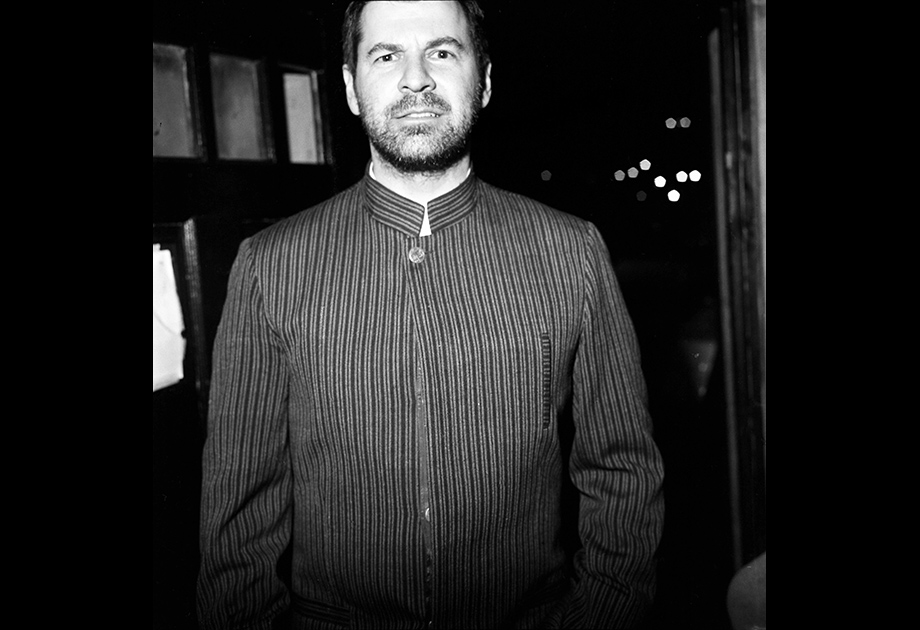 Chris Hondros hosting his New Year’s Party: Brooklyn, New York. January 1, 2011. Photograph by Alan Chin
Chris Hondros hosting his New Year’s Party: Brooklyn, New York. January 1, 2011. Photograph by Alan Chin
Alan Chin:
During the war in Kosovo, Tyler Hicks was driving a battered old Renault we were renting, with five or six of us crammed into it lurching around the streets of Pristina. Hondros was holding Tyler’s bag with computer and camera inside. Suddenly a faulty lock popped the door open and the bag flew out and thudded onto the cobblestones. Tyler asked, “What was that?” and Chris responded, “Oh, I think that was your Leica, man.” Luckily we backtracked and found everything intact. That’s how I first met Chris Hondros twelve years ago.
Hundreds of thousands of refugees were ethnically cleansed by Milosevic’s Serbian nationalist thugs. We were young, though no longer innocent any more. We were committed to documenting that war and its impact on civilians. We wanted our photographs to be seen by the world and make a difference. Now at this awful moment of Chris’s death in Libya, I am absolutely sure that he succeeded in accomplishing everything — and much more — than he had ever dreamed.
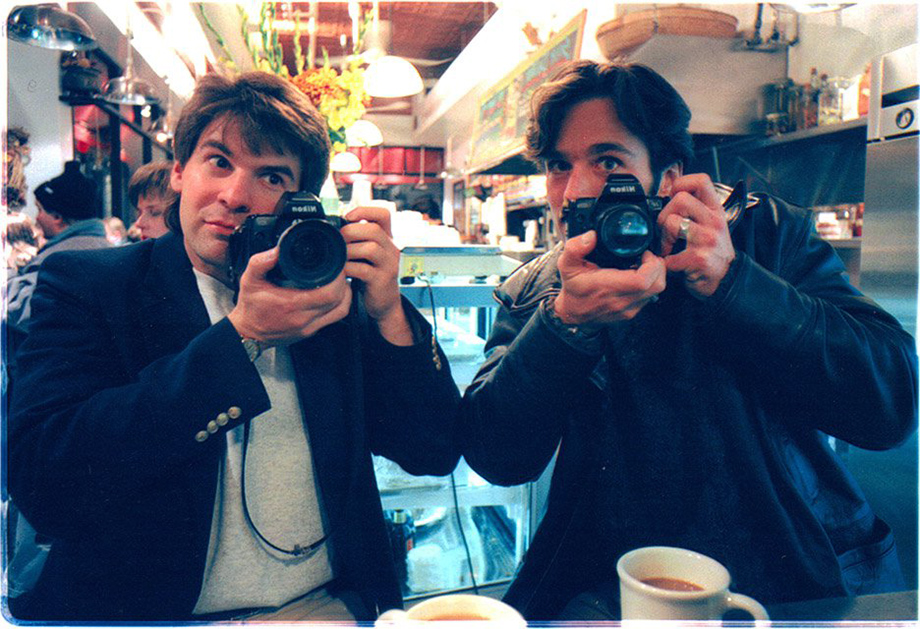 Photograph by Tyler Hicks: “Hondros and me, 1997.”
Photograph by Tyler Hicks: “Hondros and me, 1997.”
I last saw Hondros in Tahrir Square, just six or seven weeks ago as revolution swept through Egypt. At one point we ended up on a rickety platform of toothpick two-by-fours jury built on top of a fence, photographing the angry crowd right before Mubarek’s downfall. We laughed about whether or not we were going to fall headfirst into concrete, while discussing each breaking piece of news.
He also told me that he was engaged to be married this summer. Before that, I had been at the party that he threw every New Year’s Eve in Brooklyn. Special news and ordinary news: The chitchat of friends, the shoptalk of colleagues, in settings both mundane and extraordinary — such are the rituals of our tribe, like any other — and such was the way we said goodbye, casually.
We were all of us lucky for a very long time. So lucky that you begin to take it for granted. Close calls are only that, close rather than actual. And even when bad things happened to good people, even with our losses over the years, the shock of two friends killed in a flash, two brave, honorable, intelligent, and generous souls; that is hard to accept.
From the Balkans to Lebanon and Palestine, Iraq, Afghanistan, Liberia, Sierra Leone, and many other fault lines of our turbulent time, Hondros brought not just his camera but a deep knowledge of history, politics, and culture. He understood better than most photographers what his images could mean, and how they work.
Across the years we’ve been a happy few, a small band of brothers (and sisters) in the unlikeliest, but also sometimes the loveliest places. When we were hanging out in Cairo, I was sure we would see each other again soon. But though that can no longer be true, it still is. It always will be. Your work was not in vain. I cry and I mourn.
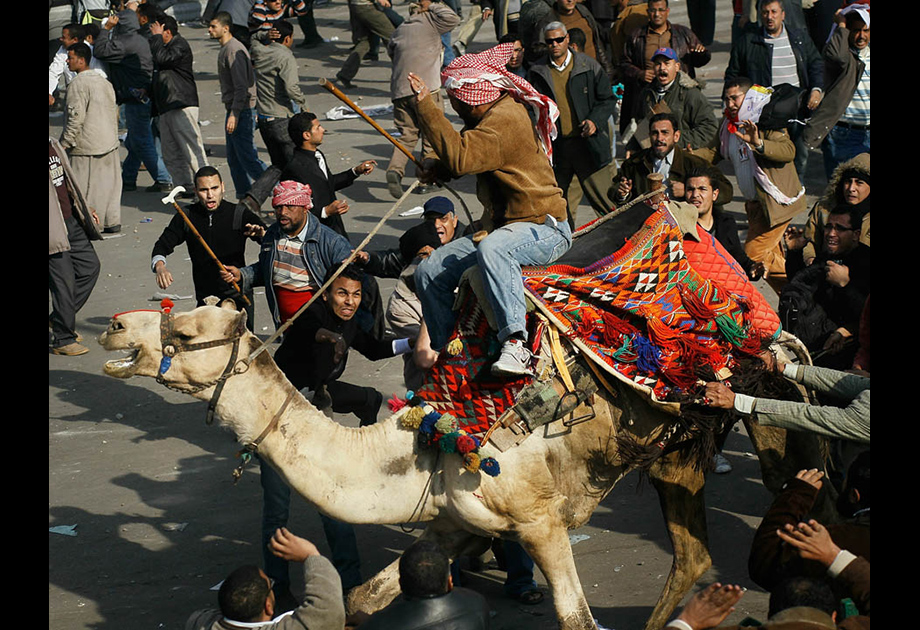 A supporter of embattled Egyptian president Hosni Mubarek rides a camel through the melee during a clash between pro and anti-government protesters. February 2, 2011 in Cairo, Egypt. Photograph by Chris Hondros / Getty Images
A supporter of embattled Egyptian president Hosni Mubarek rides a camel through the melee during a clash between pro and anti-government protesters. February 2, 2011 in Cairo, Egypt. Photograph by Chris Hondros / Getty Images
Scout Tufankjian:
This isn’t my favorite picture by Chris Hondros; nor do I think it’s his best, but it is one I will remember, because he was so damn proud of it. There was a crew of us that spent the entire Egyptian Revolution together: Chris, myself, and fellow photographers from all over the world. We met for breakfast every morning, dinner every night, and spent most days working side by side. Late nights were usually spent on the balcony of Room 1825 of the Intercontinental Hotel, looking out onto Tahrir Square. And the whole time, that picture was one of the main topics of conversation. You see — the rest of us missed it — and Hondros nailed it. People would come up to him at breakfast: “Wow – that camel picture is unbelievable” and he would get this look on his face that wasn’t quite a smirk and wasn’t quite just a smile and thank them graciously. Then we would throw something at him.
A British tabloid did a followup on the camel that revealed: Not only was it supposedly dead (we all doubted it: Tahrir is big, but not big enough to conceal a dead camel), but that it was named “Michael Jackson.” The teasing never let up. The ghost of the camel was coming after Chris for Michael Jackson, and Michael Jackson’s camel partner (named – and I’m not kidding – “Barack Obama”) was going to take revenge, all camels worldwide were going to take him to task for highlighting their moment of shame…whatever we could think of. On the day that he dragged me and Julian Reichelt out to the Pyramids, we only convinced Julian to go by promising that he wouldn’t have to ride a horse. When we got there, however, the choices were: horse — or camel. There was no way any of us were going to get on a camel with Chris Hondros. Not after that picture!
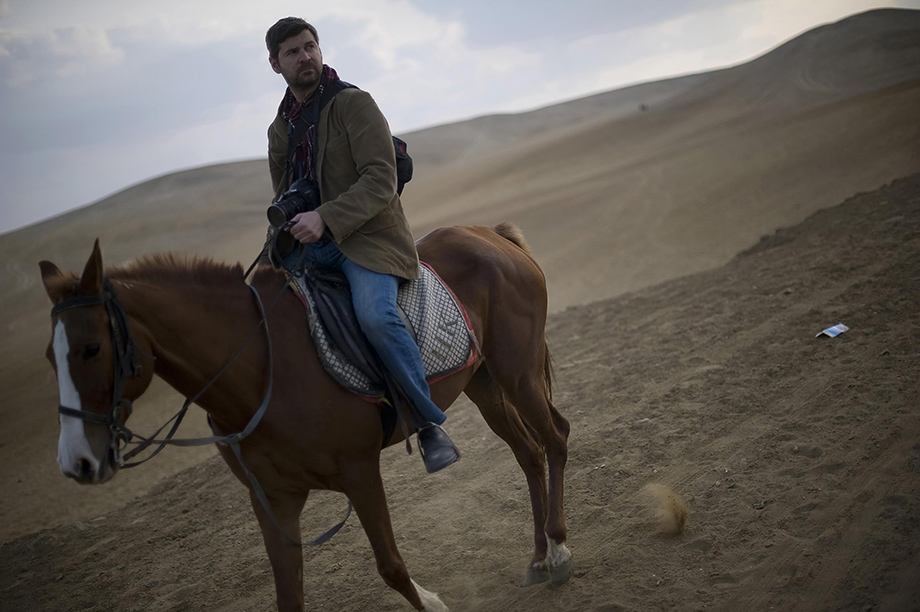 At the Pyramids, Giza, Egypt: February 8, 2011. Photograph by Scout Tufankjian
At the Pyramids, Giza, Egypt: February 8, 2011. Photograph by Scout Tufankjian
The day after Mubarak fell, we were finally able to put into motion the plan we’d hatched for weeks (hey – you try to find a gift shop open during a revolution — it’s harder than you think). After dinner and drinks at a swish Lebanese place near the embassies, we gave Chris his prize: a small felt camel that proclaimed him the first and only recipient of the coveted “Official Golden Camel of the Egyptian Revolution” award.
Stephanie Sinclair:
After not knowing how to express my feelings about Chris, I wrote a long letter – catching him up on things he would have wanted to know, congratulating him on what was new in his life, but mostly thanking him. Things we should have been talking about in the time since we’d last spoken, which had been too long ago. As can happen in this profession, we’d grown a bit apart from the days of working alongside each other. But as we are all learning, this doesn’t mean that the friends with whom we share these incredible moments in our lives mean any less. Here is an excerpt, which I hope is a small contribution to the long list of qualities that made Chris so special:
“I just want to thank you, and wish I could give you a hug. I remember when we first met at the Hyatt Hotel in Amman, Jordan, in December 2002. Both of us were waiting for our Iraqi visas, you were instantly warm and so encouraging when I was still getting my feet wet. We had dinner and talked for hours, yammering about our love lives, while filled with dizzying anticipation of the looming invasion of Iraq. I was clearly a handful in your world, and you said something like, ‘Steph, I can tell you are going to be very-high maintenance and take up a lot of space in my life, but I’m going to make room for you.’ And from then on, we were close friends. You guided me when most people thought I was insane to quit my job at the Chicago Tribune. You took joy in my accomplishments as I grew as a photographer, sending me emails: ‘You’re kicking ass!’ You always made time for me and opened your home to me whenever I was passing through New York.”
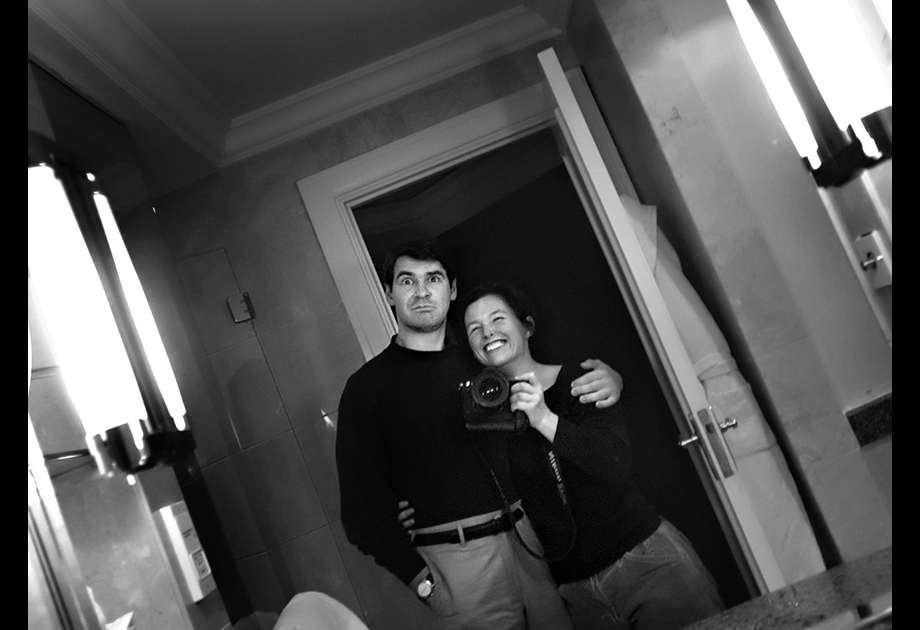 When someone passes the most valuable photos you care about are the ones you have with them. So I am sending in a photo of us when we were quite a bit younger. I think I was just 29, he was 32. Amman, Jordan: December 22, 2002. Photograph by Stephanie Sinclair
When someone passes the most valuable photos you care about are the ones you have with them. So I am sending in a photo of us when we were quite a bit younger. I think I was just 29, he was 32. Amman, Jordan: December 22, 2002. Photograph by Stephanie Sinclair
“Rest in peace my friend. I hope your loved ones, and you – wherever you may be – are feeling all the love that surrounded you, even if it wasn’t shared on a daily basis. Much love and hugs to you Chris. Stephie”
——–
Last week on April 20, photographers Chris Hondros and Tim Hetherington were killed by an exploding mortar shell or rocket-propelled grenade fired by Qaddafi forces on the front line in the besieged city of Misrata, Libya. Guy Martin and Michael Christopher Brown were wounded and survived.
We are publishing a series of remembrances and reflections of Chris.
Please make a donation to The Chris Hondros Fund, which will provide scholarships for aspiring photojournalists and raise awareness of issues surrounding conflict photography:
The Chris Hondros Fund
c/o Christina Piaia
50 Bridge Street, No. 414
Brooklyn, New York 11201
Thank you.
–BagNews
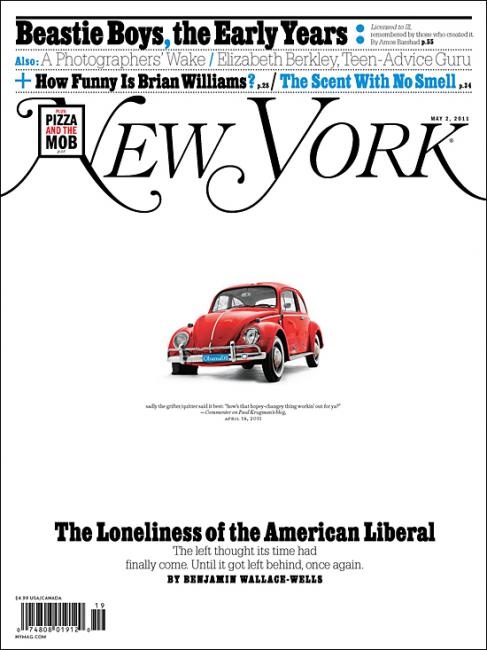
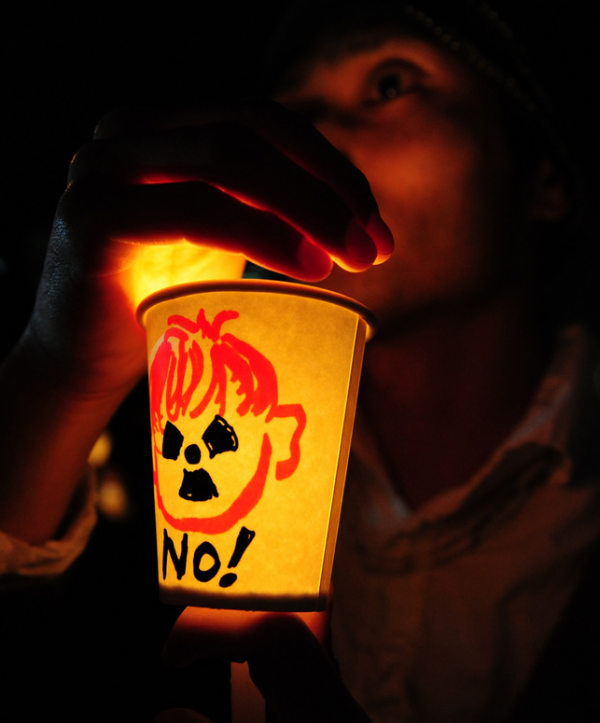
Reactions
Comments Powered by Disqus